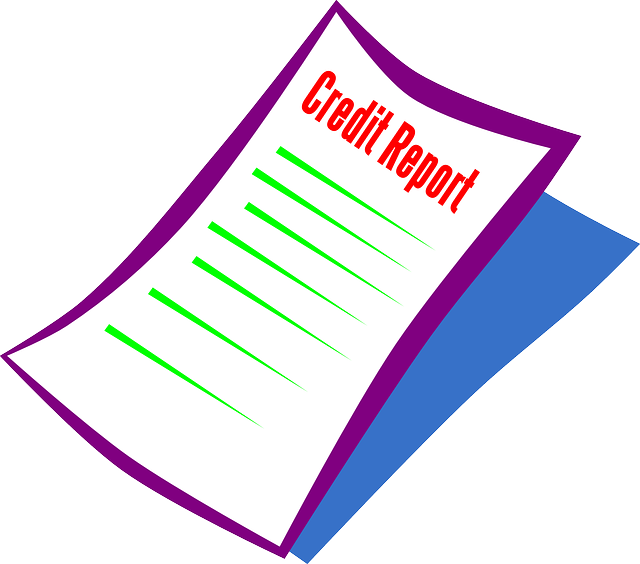Why Spring is a Prime Time for Real Estate Spring consistently ranks as one of…
Essential Home-Buying-Advice
Essential Home-Buying-Advice
Are you ready to begin the buying process in Colorado Springs or anywhere in Colorado? This post provides home buying tips and home-buying-advice on how to work with mortgage lenders, calculate closing costs, and partner with a real estate agent. Below, we’ll cover monthly payments, your down payment, the overall buying process, and how a home loan fits into your journey. We’ll also discuss gathering loan paperwork in a competitive market, understanding a conventional loans option, and why you should explore mortgage options. Finally, we’ll look at how personal finance plays a big role in your success. Let’s get started!
1. Start with Personal Finances & Debt Payments
Before diving headfirst into the buying process, make sure you have a handle on financial planning and debt payments like student loans or credit cards. This step ensures you’re financially ready to handle a home loan and any required down payment. Paying off as many obligations as possible can help raise your credit score and show mortgage lenders you can manage your payment responsibilities. A stronger credit score also paves the way toward a better interest rate on your loan—whether you choose an FHA loan, VA loans, or conventional loans.
Pro Tip: Check credit card balances regularly and consider paying them off faster. This strategy frees up your available credit to help you afford the house you want and manage closing costs effectively.
Start Saving Early
Saving for a down payment is one of the most significant challenges first-time home buyers face. To start saving early, it’s essential to understand the costs involved in buying a home. Typically, a down payment ranges from 3% to 20% of the purchase price. Closing costs, which can range from 2% to 6% of the loan amount, are also a significant expense. To start saving, consider slashing expenses and creating a budget that allocates a portion of your income towards your home buying goal. You can also explore government programs that offer assistance with down payments, such as FHA loans and VA loans. Additionally, consider asking family members for help or exploring loans with small down payments.
Check and Polish Your Credit
Your credit score plays a crucial role in determining whether you qualify for a mortgage and the interest rate you’ll be offered. To polish your credit score, start by getting free copies of your credit reports from the three major credit reporting agencies: Equifax, Experian, and TransUnion. Review your reports for errors and dispute any inaccuracies. Paying all bills on time and keeping credit card balances low can also help improve your credit utilization and score. Consider getting a secured credit card to build credit if you’re struggling to get approved for a regular credit card. Aim for a credit score of at least 700 to qualify for better interest rates.
2. Collaborate with Good Real Estate Agents & Lenders
Working with a real estate agent is part of a smooth home buying journey. A mortgage broker can also play a crucial role in the home buying process by connecting you with the best mortgage options. In fact, partnering with a good real estate agent can dramatically streamline your home buying process. Meanwhile, connecting with reputable mortgage lenders—like 719 Lending—ensures you receive personalized attention for your loan terms and interest details. A local lender in Colorado Springs understands the market climate and can help you afford****costs associated with either a traditional mortgage or adjustable rate mortgages.
Why a Good Real Estate Agent Matters
- House Hunting: A local agent will guide your house search based on your income, desired location, and must-have features. Real estate agents use property listings to help clients find homes that match their criteria.
- Competitive Market Tips: If you’re in a competitive market, a good agent can advise on winning bids and negotiating with home sellers.
- Research Neighborhoods: Your agent can help you identify hidden gems in rural areas or up-and-coming developments where you might find your first home or even your forever home.
Explore Mortgage Options
As a first-time home buyer, it’s essential to explore mortgage options to find the best fit for your situation. Conventional loans, FHA loans, VA loans, and USDA loans are some of the most common types of mortgages. Conventional loans are not guaranteed by the government and typically require a higher down payment. FHA loans, on the other hand, are insured by the Federal Housing Administration and allow for lower down payments. VA loans are guaranteed by the Department of Veterans Affairs and offer generous benefits and terms for active-duty service members and veterans. USDA loans are guaranteed by the U.S. Department of Agriculture and offer favorable terms for suburban and rural home buyers. Consider working with an experienced loan officer to find the best mortgage product for your situation.
3. Preparing for Down Payment & Closing Costs
For many first time home aspirants, saving enough money for a down payment and closing costs can feel daunting. However, if you start saving early, you’ll be amazed at how quickly you can accumulate the costs needed to embark on your home buying adventure.
- Down Payment Basics: A standard down payment on a conventional loans product typically ranges from 3% to 20% of the purchase price. Some home buyers prefer a smaller down payment if they qualify for certain homebuying programs or if they choose an FHA loan backed by the Federal Housing Administration. A larger down payment can help build home equity faster, giving you more financial stability.
- Closing Costs: These costs can include appraisal fees, title fees, property taxes, and more. Preparing for closing costs ahead of time keeps you from scrambling to find extra money.
- Insurance Considerations: You’ll likely need homeowner’s insurance and possibly mortgage insurance depending on your down payment size. This insurance aspect adds to your monthly payments and overall payment obligations.
Note: Some va loans do not require a down payment, allowing qualifying borrowers to afford a house sooner. Plus, a lower interest rate may be available for those who meet Veterans Affairs criteria.
4. Navigating the Buying Process & Loan Paperwork
The home buying process involves multiple steps: analyzing your finances, connecting with a lender, and ensuring your loan paperwork is in order. You’ll often need:
- Tax Returns: Lenders want to see proof of consistent income.
- Pre Approved Status: Getting pre approved for a home loan sets you apart in a competitive market. A good credit report is crucial for loan approval.
- Loan Paperwork for Final Sign-Off: This might include details about any debt, pay stubs, and your latest bank statements.
If you’re unsure which home loan is right for you, consider an FHA loan if your credit score isn’t high enough for a lower interest rate on a conventional loans product. This is where the Federal Housing Administration can help some first time homebuyers. Alternatively, VA loans may benefit those who served in the military and want flexible loan terms or even zero down payment.
5. House Hunting & The Bigger Market Picture
The fun part of the buying process is often the house hunting stage. However, keep in mind how the market shapes costs, interest, and inventory:
- Visit Open Houses: Make a list of each house you see and compare important features like lot size, layout, or whether the home inspection uncovered issues. Additionally, consider the importance of a home appraisal to ensure the house’s value aligns with the asking price.
- Market Forces: A strong seller’s market means you might have to act quickly on a house you love, especially if you want to afford a certain purchase price.
- Loan Strategies: If interest rates look poised to rise, locking in a favorable interest rate early might save you significant money over your payment period.
Don’t Skip the Home Inspection
A home inspection is a crucial step in the home buying process that can save you thousands of dollars in the long run. A professional inspector will assess the structure and mechanical systems of the property, identifying potential problems that may not be immediately apparent. This can give you leverage to negotiate with the seller or even walk away from the deal if the issues are significant. Don’t skip the home inspection, as it can provide valuable peace of mind and protect your investment.
6. Final Steps: Closing Costs, Loan Terms & Basic Upkeep
Once you’ve chosen a house, be sure to review:
- Loan Terms: Understand whether you have a fixed or variable interest structure, how your monthly payments break down, and any mortgage insurance required.
- Closing Costs: You’ll likely pay for title insurance, an insurance policy on the property, potential property taxes, and other costs associated with finalizing the sale. An escrow account is often used to manage funds for property taxes and insurance, ensuring these expenses are paid on time.
- Basic Upkeep: After closing, your new house will need ongoing maintenance. Keep some money in reserve to pay for repairs or improvements.
How Much Home can you truly afford? The best approach is to compare your income, your outstanding debt, and projected payment amounts. If you’re unsure, ask your lender at 719 Lending to help you evaluate your finances so you can secure the right home loan.
Plan for Monthly Payments
As a first-time home buyer, it’s essential to plan for monthly payments that go beyond just your mortgage. Property taxes, home insurance, maintenance costs, and HOA fees can add up quickly. Consider using a mortgage calculator to estimate your monthly payments and factor in these additional expenses. Aim to keep your monthly housing costs below 25% of your take-home pay to avoid being house poor. Don’t forget to budget for closing costs, which can range from 2% to 6% of the loan amount.
Make a Strong Offer
When making an offer on a home, it’s essential to be strategic and competitive. Consider working with a good real estate agent who can guide you through the process and help you negotiate with the seller. Don’t show your hand too early, and be prepared to walk away if the deal doesn’t feel right. A strong offer should include a pre-approval letter from a reputable mortgage lender, a reasonable price, and a clear understanding of the contingencies involved. Don’t be afraid to negotiate, and be prepared to compromise to get the deal done.
FAQ: Common Questions from First Time Home Buyers
Below are some questions new home buyers ask when they start the buying process:
- When should I get pre approved for a home loan?
- Ideally, get pre approved before you begin serious house hunting. A pre approved letter proves to home sellers that you have the financial backing to make a serious offer in a competitive market. Additionally, reviewing a home inspection report before finalizing a purchase is crucial to ensure there are no hidden issues with the property.
- How do I know my down payment target?
- Most home buyers aim for at least 3% to 5% of the purchase price—sometimes more if they can manage it. A bigger down payment can reduce closing costs like mortgage insurance and might lead to a better interest rate.
- Do I need to worry about adjustable rate mortgages?
- Adjustable rate mortgages can be a good choice for certain first time home shoppers if they plan to move or refinance before rates adjust. But if you want a stable payment, a traditional mortgage with a fixed interest rate offers predictable monthly payments.
- How can I use homebuying programs?
- Some lenders or state agencies provide homebuying programs that lower your costs or interest over time, especially for a first time buyer with strong personal finance habits.
- What if I’m not sure how much house I can afford?
- Ask your lender at 719 Lending about your unique finances. Factor in your income, total debt, and potential future expenditures like basic upkeep of the house.
Conclusion: Making the Biggest Purchase with Confidence
Your first time home purchase is one of life’s biggest purchase moments, and feeling financially ready goes a long way. By managing debt payments wisely, raising your credit score, and working with an experienced real estate agent and lender, you’ll navigate the home buying process more smoothly—even in a competitive market. Staying informed about real estate market trends is also crucial to making a well-informed decision.
Ready to buy your first home? Contact 719 Lending or explore mortgage options on our Home Loan Options page. We specialize in Colorado Springs real estate and can guide you toward the right loan program, whether it’s FHA loan, VA loans, or conventional loans.
Disclaimer
This blog post is for informational purposes only and does not constitute financial advice. Please consult a licensed mortgage professional for individualized guidance. NMLS#1601989. Equal Housing Lender. We comply with the Fair Housing Act and all other applicable laws. For more information, visit HUD.gov or Colorado.gov.





